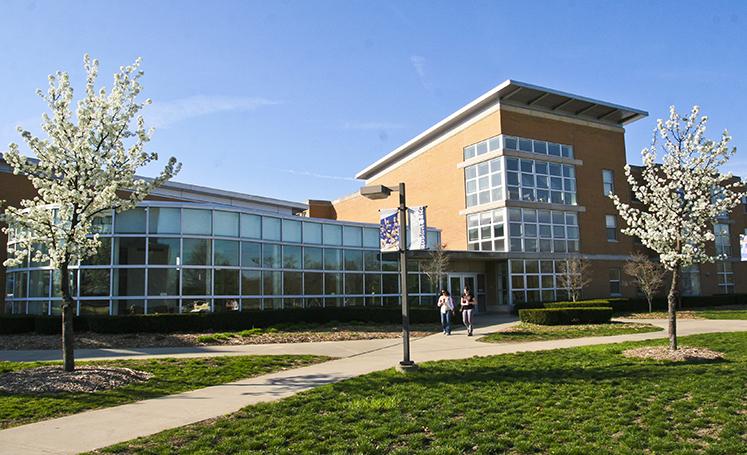Change coming to the residence halls
February 15, 2017
Lincoln and Founders Residence Halls are set to undergo some organizational changes in regards to the various Living Learning Communities (LLCs).
Late last spring, the university brought in an external review board to examine the status of residence life on campus.
According to John Ringle, external peer reviews happen “periodically” to assess a department’s performance.
“In the conversations they had with students and staff, there were concerns, they noted, about the perceived, distinct racial makeup of both buildings,” Ringle said. “They very clearly said that this is something the university has to address in a positive, forceful manner.”
According to Mark Dochterman, the director of the Volunteer and Civic Engagement Center and subsequent director of the Leadership for Life LLC, the conversation about the divisions between residence halls has existed for a while.
“About a year ago, there were a few articles written [in The Journal] about the relationship between, or lack thereof, between [Lincoln] and Founders,” Dochterman said.
“But pre-existing that, there were conversations among staff members about how to make our campus as welcoming as it possibly can be.”
Following the articles and the external review, a special committee formed.
The committee included leaders across campus like Ringle and Dochterman, Marc Klingshirn from CAP Honors, Justin Rose from Necessary Steps, and Tarah Sweeting-Trotter from STARS.
Together, they developed a plan to “facilitate better collaboration between the LLCs and to help increase interaction between students within our respective groups,” according to a presentation given last November.
As stated in the presentation, three specific items were developed to address these concerns.
The first item involves LLC student attending two campus events from an “approved list” that will “allow students to learn about cultures/identities other than their own.”
The presentation referenced events like “Dred Scott, Wong Kim & Vanessa Lopez” and “The Legacy Wall: LGBT History.”
“They try to take advantage of some of the already programmed ECCE formats, which I think is a natural tie-in,” Ringle said.
The second item is a service experience requirement to be fulfilled either at UIS or within the greater Springfield community.
The third item introduces a “common topic/curricular component” among the LLC freshman seminars. An example of this was the LLC-specific presentation with Jane Elliott last semester.
“That’s something [LLCs] did all together,” said Dara Abina, the student success coach and coordinator for STARS. “It was a session just for LLCs … so it does bridge this gap.
“It just brings some type of cohesiveness for everyone.”
And cohesiveness is something many students in the residence halls look for.
Yuli Salgado, a Leadership for Life student, said, “I do feel the divide [between halls]. I feel like I don’t get a chance to interact with other students.”
Another student living in LRH, Lindsay Harris, shares Salgado’s concern.
“I feel like I don’t know anyone from Founders because there isn’t interaction, unless you go to the grill,” she said.
Dochterman noted that students from both residence halls feel the divide, though from different avenues.
Students in Founders often feel that they lack the resources that students in Lincoln receive, while students in Lincoln tend to feel like they’re missing out on the diversity of campus.
Other students, however, don’t feel the same.
Fady Karim, a Founders resident, said that he doesn’t “feel a divide” because he visits Lincoln “all the time.”
Lindsey Storm, another Founders resident, feels the same, though she said she could “see how others might [feel a divide].”
When asked about how the university could better diversify housing, Karim said, “I don’t feel like the university needs to do anything with the current situation.”
However, the university is pushing forward.
The committee developed a step-by-step plan to “reconfigure the placements” of LLCs, according to Ringle.
In the academic year 2017-2018, STARS will be moved into Lincoln, while Leadership for Life traditional freshmen and one mentor are moved in Founders.
Additionally, Abina will become a “formal administrative/advising presence” in Lincoln for STARS students.
By the academic year 2018-2019, the goal is to have one freshman residence hall and one sophomore residence hall.
Lincoln is intended to be the freshman hall, while Founders is intended to be the sophomore hall.
Harris said, “I wouldn’t be opposed to it, because you get to know your classmates better.
I feel as though I’m restricted to the people within my hall.”
On the other hand, Karim said, “We need the upper classmen to help us, especially the first semester.”
However, committee members believe the transition will benefit students in the long run.
“I think anytime there’s change there’s going to be some resistance,” said Sweeting-Trotter. “I think change is difficult. But I also think that we have a lot of very enthusiastic student-centered professionals, who are ready and willing to help students adjust to that change.”
“Our goal is absolutely to build community in both of those groups,” she continued. “However, we recognize that freshmen and sophomores have different needs for support.”
Examples of those differences includes increasing freshman engagement on campus, or helping sophomore students’ transition into their majors.
“Students are a pretty resilient lot,” Ringle said.
“Yes, it may be an initial challenge … but I have a lot of faith in students that they’re pretty adaptable.”
Ringle continued, “The flipside of worry is opportunity.
This is an opportunity for them … to perhaps learn something from someone they otherwise wouldn’t have had a reason to associate with.”
However, Dochterman noted that students also have responsibility in these endeavors.
“We can change where people live,” he said. “We can change the resources available to people, but the students also have a responsibility to take advantage of them and use them to their fullest.”













